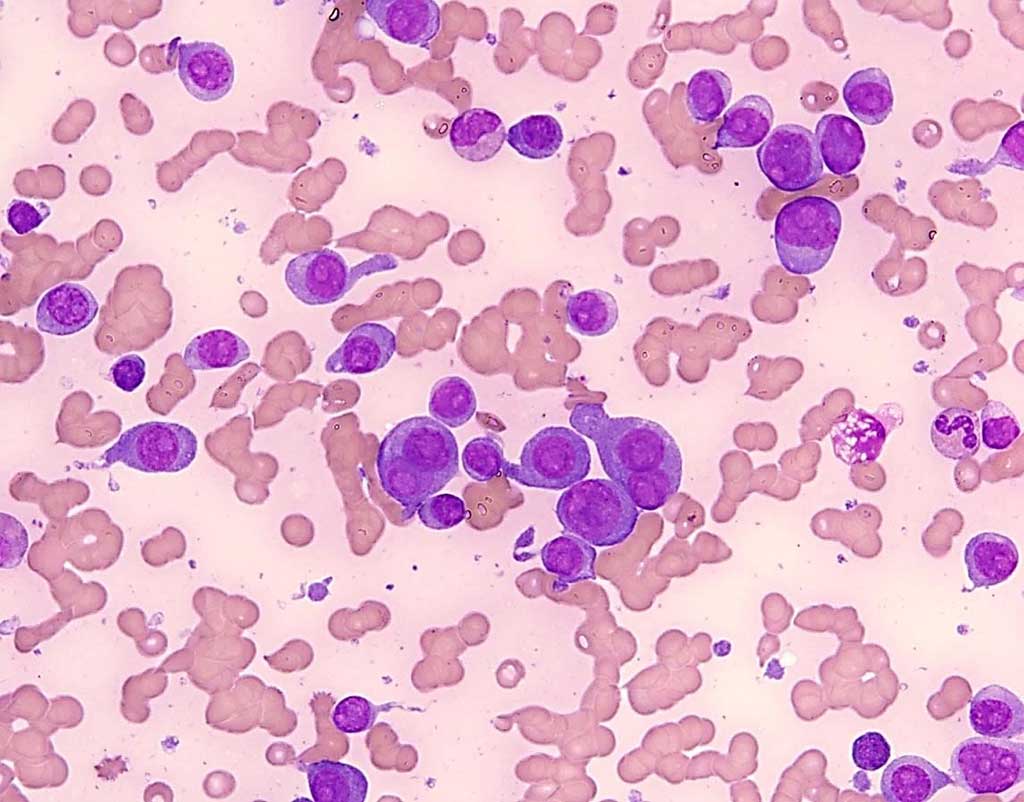Inherited Causes of Clonal Hematopoiesis in Multiplicity of Whole Genomes
By LabMedica International staff writers
Posted on 29 Oct 2020
The age-related acquisition of somatic mutations that lead to clonal expansion in regenerating hematopoietic stem cell populations has recently been associated with both hematological cancer and coronary heart disease, and this phenomenon is termed clonal hematopoiesis of indeterminate potential (CHIP). Posted on 29 Oct 2020
As the name CHIP suggests, this subpopulation in the blood is characterized by a shared unique mutation in the cells' DNA; it is thought that this subpopulation is "clonally" derived from a single founding cell and is therefore made of genetic "clones" of the founder. Simultaneous analyses of germline and somatic whole-genome sequences provide the opportunity to identify root causes of CHIP.

Image: Mutations in cell free DNA (cfDNA) or cells in the peripheral blood along with anemia or thrombocytopenia are the hallmark of myelodysplastic syndrome (MDS). The diagnosis of MDS is confirmed when mutations in hematopoietic cells are detected at relatively high levels (Photo courtesy of Genomic Testing Cooperative).
A team of scientists at the Broad Institute (Cambridge, MA, USA) and their colleagues analyzed high-coverage whole-genome sequences from 97,691 participants of diverse ancestries in the National Heart, Lung, and Blood Institute Trans-omics for Precision Medicine (TOPMed) programme, and identify 4,229 individuals with CHIP. They noted that the prevalence of CHIP increased with the age at which the blood samples were taken from participants, as well as with a history of smoking.
The investigators identified associations with blood cell, lipid and inflammatory traits that are specific to different CHIP driver genes. Association of a genome-wide set of germline genetic variants enabled the identification of three genetic loci associated with CHIP status, including one locus at TET2 that was specific to individuals of African ancestry. About three-quarters of individuals with CHIP had mutations in just three genes: DNMT3A, TET2, and ASXL1. Some CHIP characteristics, they noted, varied by driver gene mutation. For instance, JAK2 CHIP mutation carriers were generally younger than other carriers, and TET2 CHIP carriers tended to have increased interleukin-1β (IL-1β levels), while JAK2 and SF3B1 carriers had increased circulating IL-18.
Within a subset of this cohort, the team conducted a single-variant genome-wide association analysis to uncover germline variants linked to CHIP. Through their analysis and subsequent replication, they uncovered one variant in TERT that was associated with a 1.3-fold increased risk of developing CHIP, as well as a variant near both KPNA4 and TRIM59 that was associated with a 1.16-fold increased risk and a variant near TET2 that was associated with a 2.4-fold increased risk of developing CHIP.
The authors concluded that germline genetic variation shapes hematopoietic stem cell function, leading to CHIP through mechanisms that are specific to clonal hematopoiesis as well as shared mechanisms that lead to somatic mutations across tissues. The study was published on October 14, 2020 in the journal Nature.
Related Links:
Broad Institute













